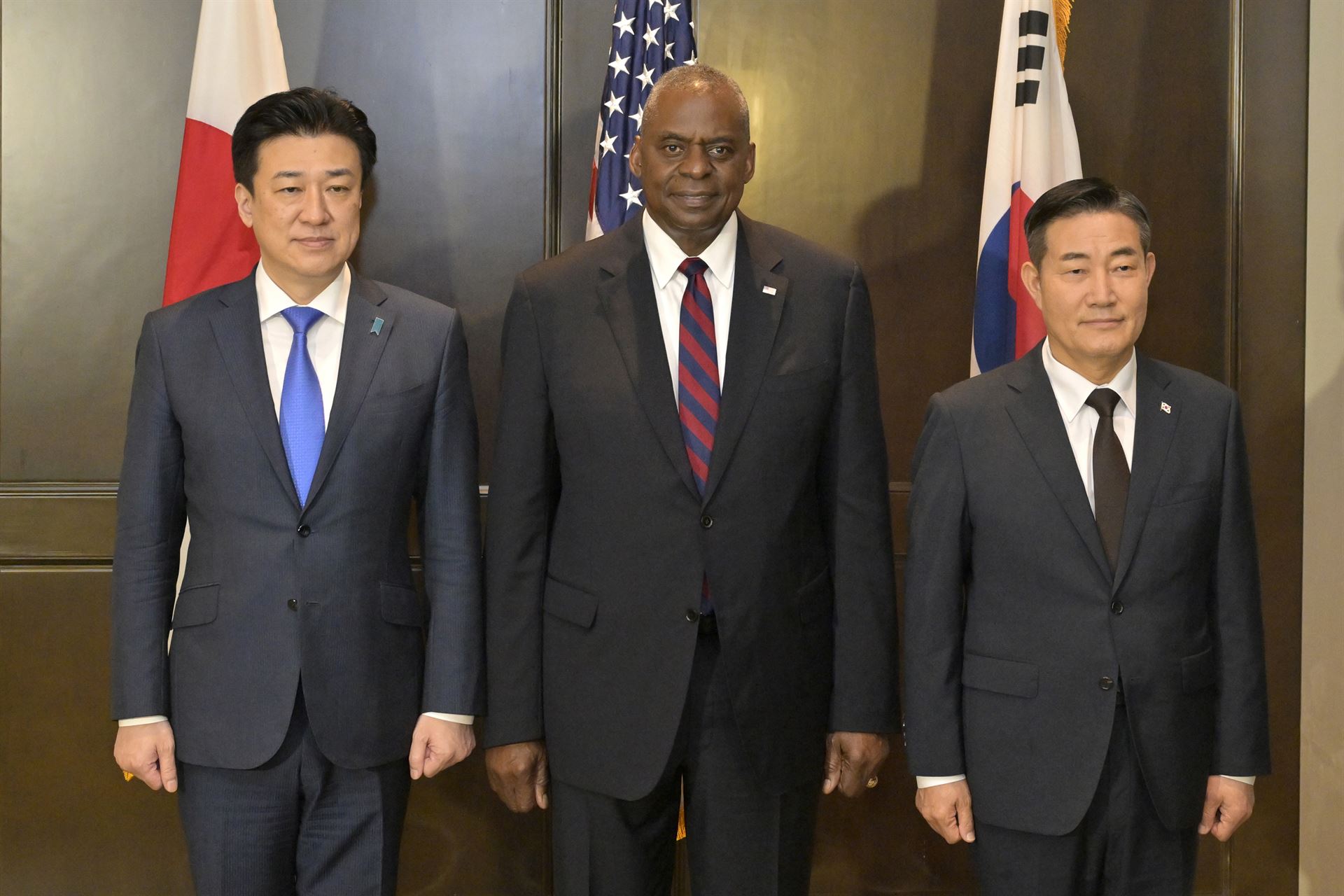
BEIJING - A Chinese foreign ministry spokesperson on Monday said the United States, Japan and the Republic of Korea used their trilateral defense ministers' meeting and trilateral vice-foreign minister-level dialogue to deliberately attack and vilify China.
On June 2, defense ministers of the United States, Japan and the ROK held a trilateral meeting in Singapore and issued a joint press statement, in which they blamed China. The media note of the US-Japan-ROK Trilateral Vice-Foreign Minister-Level Dialogue held in Washington on May 31 contains similar negative content on China.
READ MORE: China hopes Summit on Peace in Ukraine not to turn into bloc confrontation platform
In response, spokesperson Mao Ning told a briefing that the three countries advance the so-called "Indo-Pacific Strategy", point fingers and grossly interfere in China's internal affairs on the Taiwan question, deliberately attack and vilify China on maritime issues, and sow discord between China and neighboring countries.
If relevant countries truly care about cross-Strait peace and stability and want the world to be safe and prosperous, they should uphold the one-China principle, unequivocally oppose "Taiwan independence" separatist activities, and support China's reunification, Mao said
"Such moves seriously violate basic norms governing international relations. China strongly deplores and opposes this," Mao said.
READ MORE: Chinese mainland to halt tariff cuts on Taiwan imports
China firmly opposes the practice of bloc politics, anything said or done to instigate or intensify tensions and undermine other countries' strategic security and interests, and the attempt to form exclusive groupings in the Asia-Pacific, she said.
The United States needs to act on its word that the revitalization of its alliances is not targeted at China and stop seeking selfish gains at the expense of other countries' strategic security and the well-being of the people in the Asia-Pacific, she said.
The one-China principle is a universal consensus of the international community and basic norm in international relations, Mao stressed, adding that the Taiwan question is purely China's internal affair that brooks no external interference.
The biggest threat to cross-Strait peace now is the separatist activities of "Taiwan independence" forces and external connivance and support for them, she stressed.
If relevant countries truly care about cross-Strait peace and stability and want the world to be safe and prosperous, they should uphold the one-China principle, unequivocally oppose "Taiwan independence" separatist activities, and support China's reunification, Mao said.
READ MORE: Defense minister lays out China's approach to global security
Mao said that China will always defend its territorial sovereignty and maritime rights and interests. "We are committed to properly settling bilateral maritime issues with countries directly concerned through dialogue and consultation. That said, we firmly oppose countries outside the region meddling with and escalating the situation."
READ MORE: Defense spokesperson: ‘Taiwan independence’ means war
In recent years, the United States has been inciting and supporting certain countries in provoking China and infringing on China's sovereignty and maritime rights at sea, and frequently conducted joint military exercises and close-in reconnaissance with its allies in waters close to China, including the South China Sea, to flex muscles and intensify tensions in the region. "This has become the biggest threat and challenge to regional peace and stability," Mao noted.
READ MORE: Li urges more three-nation cooperation
Mao said that China's basic position on the Korean Peninsula issue is consistent. "We believe that ensuring peace and stability on the Korean Peninsula and advancing the political settlement of the Korean Peninsula issue serves the common interests of all parties. Resorting to military deterrence and imposing sanctions and pressure will only intensify differences and heighten tensions."
China urges relevant parties to be prudent in words and deeds and refrain from fueling the tension in the Korean Peninsula which is already highly complex and challenging, Mao said, adding that China will continue to handle Korean Peninsula affairs based on their merits and China's own position.


